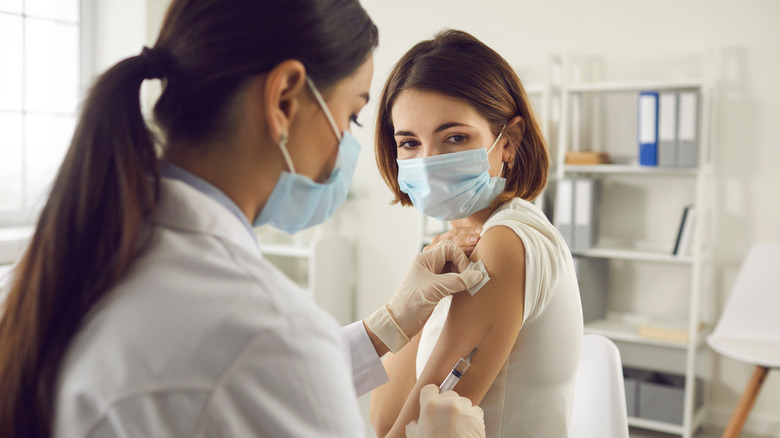How Might COVID-19 Vaccines Change After The Summer?
Spring marked a low for COVID-19 cases, but according to the Centers for Disease Control and Prevention (CDC), those numbers have been creeping back up. Researchers are planning ahead and debating how this will affect vaccinations after summer.
In an interview with Healthline, Dr. William Schaffner, professor of infectious diseases at Vanderbilt University, points out that the pandemic is shifting to an endemic. "That means it will continue to live with us and smolder around us and we are all learning how to contend with it," explains Schaffner.
For most people, experts say that our current vaccines provide strong protection against severe illness from COVID-19, but they may become slightly less effective when the virus mutates into new variants. Researchers are currently working on addressing this problem. Similar to the influenza vaccine which is quadrivalent (protecting against four different strains), scientists are working to create a COVID-19 vaccine that fights against multiple variants all at once (per Healthline). However, Schaffner notes that the timeline is unknown.
Will annual vaccinations become a thing?
While antibodies do fade over time, "the vaccines also generate something called cellular immunity, which is much longer-lasting, and protect against severe disease in a more enduring fashion," Dr. Monica Gandhi, the director of the University of California San Francisco Center for AIDS Research, tells Healthline.
However, annual vaccinations may become administered and recommended to target new variants as immunity wanes over time. This is especially important for vulnerable populations such as the immunocompromised and elderly.
According to CNN Health, June is a big month as decisions will be made around eligibility for additional COVID-19 shots as the fall and winter seasons are approaching. In fact, the U.S. Food and Drug Administration has already announced its next meeting to discuss the future of COVID-19 vaccines. Not only are researchers looking at eligibility, but they're also looking at coverage, vaccine composition, and boosters. Currently, those who are aged 50 and older or have certain medical conditions can receive an additional booster.


